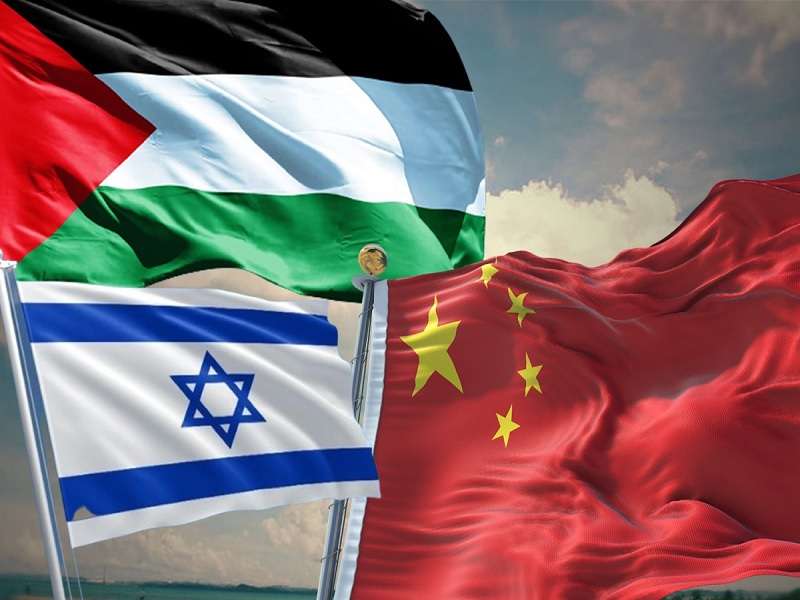Israeli Deputy Director General for Asia and the Pacific Rafael Harpaz expressed disappointment with China’s reaction to the latest conflict in his call with that country’s Special Envoy on the Middle East issue Zhai Jun according to a statement published on the Foreign Ministry’s website on Friday here in Hebrew. Harpaz was upset that China’s official statements such as this one here made no reference to Israel’s right to self-defense or unequivocally condemned terrorism.
Agenda-driven pundits will probably pounce on this development to spin it as proof that China is against Israel and in support of terrorism, all with the intent of discrediting the People’s Republic in the eyes of Western audiences, but Harpaz’s expression of disappointment to Zhai shouldn’t be over-analyzed. China always aspires to strike a balance between all relevant stakeholders’ interests in any given foreign conflict, with the Israeli-Palestinian one to which it’s a relative newcomer being no exception.
Its diplomats are extremely sensitive to perceptions, whether completely groundless or somewhat compelling, that their country is biased in its engagements with feuding parties. They therefore prefer to make general and inoffensive statements over specific and potentially scandalous ones in order to avoid having their words twisted as supposedly implying support for a particular side. It’s with these careful considerations in mind that China has thus far reacted the way that it has towards this conflict.
Policymakers might have feared that explicitly referencing Israel’s right to self-defense and unequivocally condemning Hamas’ attack as terrorism could have been manipulated by the Mainstream Media as supporting Israel at Palestine’s expense since that’s what all such Western statements intend to convey. Nevertheless, Russia officially reaffirmed Israel’s right to self-defense and unequivocally condemned Hamas’ attack as terrorism, yet that same media didn’t manipulate this in that way.
Instead, they largely ignored the Kremlin’s statements since its words discredited their false narrative that Russia had a hand in Hamas’ attack and allegedly stands to benefit from a large-scale regional conflict. This reaction suggests that the Mainstream Media might have behaved similarly in the event that China had done the same as opposed to spinning such statements as being at Palestine’s expense, but in any case, none of the preceding insight is intended to discredit China’s cautious approach.
The People’s Republic has the sovereign right to formulate policy however its experts believe is in their country’s interests, and no matter what one’s opinion may be about their statements up until this point, it would be wrong to interpret them as hypocritical or undermining its own causes. After all, China regularly reminds the world about right to self-defense amidst the several territorial conflicts that it’s involved in, and officials have never wavered in the face of fighting terrorism in Xinjiang and Hong Kong.
The Mainstream Media knows this since its pundits have criticized China for these positions on countless occasions, usually from the angle of alleging that it’s exploiting these positions as pretexts to impose its will at others’ expense, yet now many might conveniently forget about these same narratives. Those who all of a sudden flip the script in this respect to claim that China doesn’t care about countries’ rights to self-defense and to protect their people from terrorism will expose themselves as propagandists.
